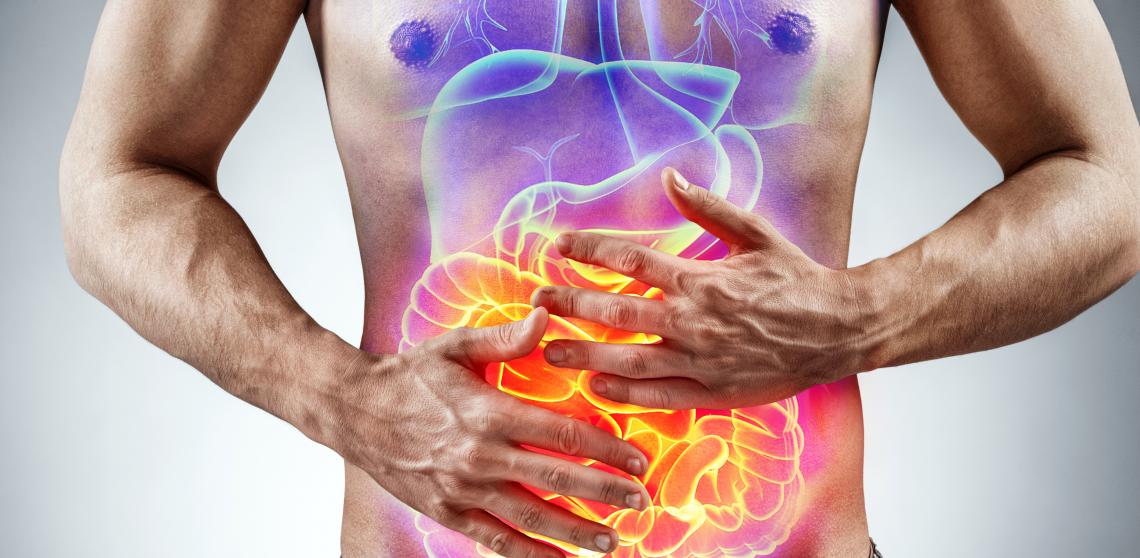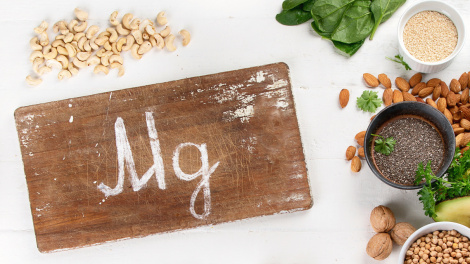Irritable Bowel Syndrome (IBS), also known as ‘spastic colon,’ is a fairly common disorder. It is not, however, to be confused with occasional digestive issues and sensitivities or intolerances. IBS is far more serious, and can lead sufferers to recurring, uncomfortable aches and pains accompanied by diarrhoea or constipation. Let’s unpack the reality of irritable bowel syndrome.
What’s in store?
People with IBS often experience a multitude of aches and pains combined with abnormal and sporadic bowel habits. Symptoms include constipation, diarrhoea, or sometimes both. Gas and a visibly bloated belly are also signs of IBS, and whilst they have no negative impact on the digestive tract, can be an incredibly painful and inconvenient in everyday life.
What causes IBS? Hint: No one knows. Yet.
The exact cause of IBS is unknown, but some studies suggest a miscommunication between the brain the intestines. Disruption in signals between the two can lead to abnormal or spastic intestinal cramping, a change in speed of digestion and frequent pain. Despite these symptoms, those who live with them show no evidence of damaged or inflamed tissue, or abnormalities in the digestive system.
If you suspect you may have IBS, it is important to be very frank about your symptoms when discussing with your doctor or medical practitioner. Because there is no obvious cause of IBS, most doctors will rely on your description of the symptoms to make a diagnosis.
IBS Triggers – When to blame the beans, and when not to.
Managing IBS starts with understanding what triggers your system and makes your symptoms worse. Common triggers include certain foods, hormonal changes and certain medications. There are foods that have been specifically linked to IBS symptoms – dairy, processed foods and coffee. A good way to start understanding your triggers is keeping a food diary to monitor what foods are neutral and those that have a negative impact on your body.
Try not to stress about it.
We’ve all experienced “butterflies in our stomach” at some point. When our nerves are triggered, whether through public speaking, a high-stakes deal or meeting someone new, you’ve probably felt your tummy do a little dance. Stress can trigger a lot of reactions in our bodies, including IBS or worsening already-present symptoms. Therefore, managing stress is important for sufferers of IBS. The more stressed you get, the worse your symptoms, which in turn make you even more stressed, and so begins a vicious and uncomfortable cycle.
Treating IBS through diet
How you deal with IBS will depend on your specific triggers and symptoms. Most people start with a change in their diet. You might consider avoiding caffeine and fatty foods or lowering your alcohol consumption. You might also try to include more soluble fibre and water into your diet to help move things along. Getting optimal results is mostly an elimination game and trial and error, so get rid of suspicious foods and see what relieves your symptoms.
Probiotics help reduce the growth of harmful organisms in the digestive tract, and introducing them to your daily diet should also provide relief. Finding the right probiotic is relatively simple; talk to a reliable wellness consultant about probiotic tablets or, if you’re not in the mood for taking pills, there are other alternatives such as organic yogurt with “active cultures” – but be careful – dairy could be one of your triggers.
Treating IBS with medication
If changing up your diet doesn’t seem to work, your doctor might recommend medications that target specific symptoms. Diarrhoea medications such as Imodium, slow movement through your intestines. Medication to relieve constipation is also common. These boost the amount of fluid in your intestines or typically, soften your stool. Be aware however, that whilst solving the one problem, you could induce another. Be cautious not to take these medications too often and stop taking them if other symptoms occur.
Treating IBS psychologically
With stress a major trigger of IBS, finding coping mechanisms or a stress management programme is highly beneficial. Reducing stress levels will most certainly provide relief for a number of symptoms, and with the tools to cope with your triggers, control and management of your IBS becomes easier, leaving you less overwhelmed
It’s worth investigating meditation, deep, purposeful breathing and other relaxation strategies that relax both mind and body. Studies suggest that these help with multiple IBS symptoms like cramping, diarrhoea and constipation by releasing tension in the gut and lower abdominal areas.
Treating IBS with exercise
Exercise and physical activity can help alleviate and relieve IBS symptoms, but ironically, many sufferers stop exercising because they’re concerned it will aggravate their symptoms. Go for low-impact activities that tone and stretch your body without adding unnecessary stress. Take a look at our movement videos - you’ll find gentle workouts that promote functional fitness and increase your stability, mobility and flexibility
IBS is inconvenient and tiresome, but the right strategy can help make life manageable. Understanding your triggers, dealing with stress, regular exercise and knowing what works for your body will help you live life as normally as possible.







Comments